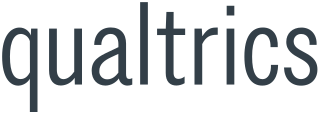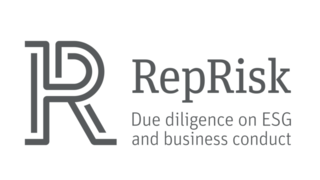
Svenska Dagbladet, abbreviated SvD, is a daily newspaper published in Stockholm, Sweden.

LGBT is an initialism that stands for lesbian, gay, bisexual, and transgender. In use since the 1990s, the term is an adaptation of the initialism LGB, which was used to replace the term gay in reference to the LGBT community beginning in the mid-to-late 1980s. Activists believed that the term gay community did not accurately represent all those to whom it referred.

A multinational corporation (MNC) is a corporate organization that owns or controls production of goods or services in at least one country other than its home country. Black's Law Dictionary suggests that a company or group should be considered a multinational corporation if it derives 25% or more of its revenue from out-of-home-country operations. However, a firm that owns and controls 51% of a foreign subsidiary also controls production of goods or services in at least one country other than its home country and therefore would also meet the criterion, even if that foreign affiliate generates only a few percent of its revenue. A multinational corporation can also be referred to as a multinational enterprise (MNE), a transnational enterprise (TNE), a transnational corporation (TNC), an international corporation, or a stateless corporation. There are subtle but real differences between these terms.

Bergens Tidende is Norway's fifth-largest newspaper, and the country's largest newspaper outside Oslo.
The reputation of a social entity is an opinion about that entity, typically as a result of social evaluation on a set of criteria.

Corporate social responsibility (CSR) is a type of international private business self-regulation that aims to contribute to societal goals of a philanthropic, activist, or charitable nature by engaging in or supporting volunteering or ethically-oriented practices. While once it was possible to describe CSR as an internal organisational policy or a corporate ethic strategy, that time has passed as various international laws have been developed and various organisations have used their authority to push it beyond individual or even industry-wide initiatives. While it has been considered a form of corporate self-regulation for some time, over the last decade or so it has moved considerably from voluntary decisions at the level of individual organisations, to mandatory schemes at regional, national and international levels.
Reputation management refers to the influencing and controlling of an individual's or group's reputation. Originally a public relations term, the growth of the internet and social media, along with reputation management companies, have made search results a core part of an individual's or group's reputation. Online reputation management, sometimes abbreviated as ORM, focuses on the management of product and service search website results. Ethical grey areas include mug shot removal sites, astroturfing customer review sites, censoring negative complaints, and using search engine optimization tactics to influence results.

The Métis are a multiancestral indigenous group whose homeland is in Canada and parts of the United States between the Great Lakes region and the Rocky Mountains. The Métis trace their descent to both Indigenous North Americans and European settlers. Not all people of mixed Indigenous and Settler descent are Métis, as the Métis is a distinct group of people with a distinct culture and language. Since the late 20th century, the Métis in Canada have been recognized as a distinct Indigenous peoples under the Constitution Act of 1982 and have a population of 587,545 as of 2016. Smaller communities self-identifying as Métis exist in the United States, such as the Little Shell Tribe of Montana. The Métis ethnogenesis began in the fur trade and they have been an important group in the history of Canada, as well as the foundation of the province of Manitoba. The Métis have homelands and communities in the U.S., as well as in Canada, that have been separated by the drawing of the U.S.-Canada border at the 49th parallel North. The Metis Nation is the only recognized people as a people by the Canadian governments and a have a defined map and Territory.

The Wallace E. Carroll School of Management (CSOM) is the business school of Boston College in Chestnut Hill, Massachusetts. The school is regularly ranked among the best business schools in the United States, particularly its undergraduate program and world-renowned research faculty.

Asian Pacific American Heritage Month is a period for the duration of month of May for recognizing the contributions and influence of Asian Americans and Pacific Islander Americans to the history, culture, and achievements of the United States.
Corporate communication is a set of activities involved in managing and orchestrating all internal and external communications aimed at creating favourable point of view among stakeholders on which the company depends. It is the messages issued by a corporate organization, body, or institute to its audiences, such as employees, media, channel partners and the general public. Organizations aim to communicate the same message to all its stakeholders, to transmit coherence, credibility and ethics.
Expansión is a Spanish economic and business newspaper published in Madrid, Spain.
Uusi Suomi was a Finnish daily newspaper, which was published from 1919 to 1991.
Reputation.com is a business-to-business online reputation management and customer experience management company headquartered in Redwood City, California. The company claims its software-as-a-service platform helps businesses monitor and respond to online reviews, social media, and surveys; analyze customer sentiment; and collaborate to make operational improvements.

Qualtrics is an experience management company, with co-headquarters in Provo, Utah and Seattle, Washington, in the United States. The company was founded in 2002 by Scott M. Smith, Ryan Smith, Jared Smith and Stuart Orgill.
Cornelis Bernardus Maria (Cees) van Riel is a Dutch organizational theorist, consultant, and Professor of Corporate Communication at Rotterdam School of Management and Director of the Corporate Communication Centre at the Erasmus University, known for his work in the area of corporate communication and reputation management.

Bright Future is a liberal political party in Iceland founded in 2012.

RepRisk AG is an environmental, social, and corporate governance (ESG) data science company based in Zurich, Switzerland, specializing in ESG and business-conduct risk research and quantitative solutions.

Actualidad Económica is a Spanish language monthly business magazine published in Madrid, Spain.












